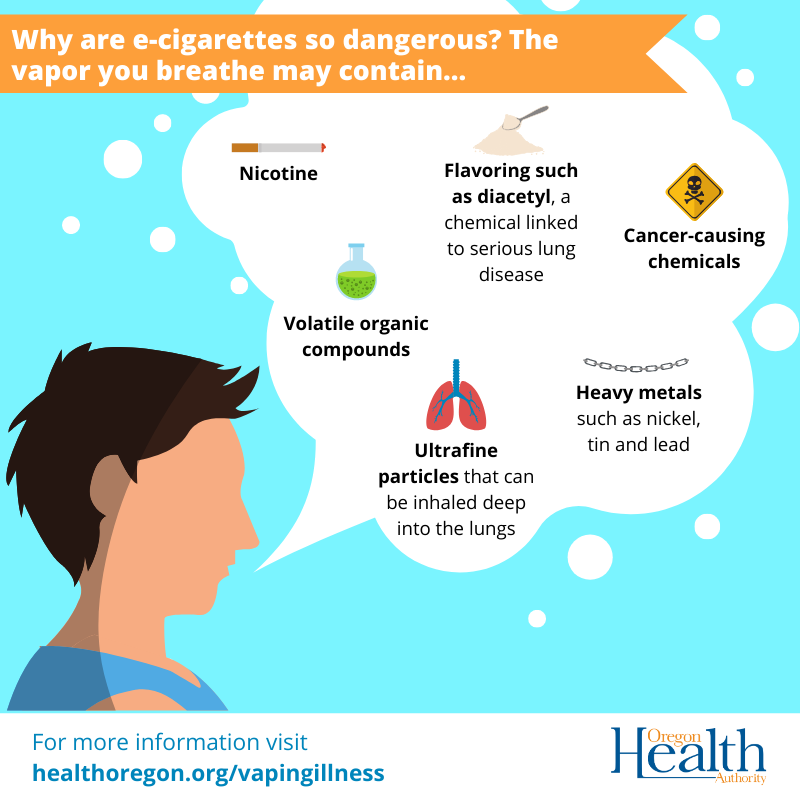Understanding the Health Risks of Electronic Cigarettes
Electronic cigarettes, commonly known as e-cigarettes or vapes, are not harmless. While often marketed as a safer alternative to traditional cigarettes, they expose users to various harmful substances and carry significant health risks.
Key Harmful Components and Effects:

- Nicotine: A highly addictive substance present in most e-cigarettes. Nicotine can harm adolescent brain development, which continues into the early to mid-20s. It is also toxic and can negatively impact heart rate and blood pressure.
- Ultrafine Particles: These can be inhaled deep into the lungs and may cause inflammation and exacerbate respiratory conditions.
- Flavoring Chemicals: Some flavoring agents, such as diacetyl, have been linked to serious lung diseases like bronchiolitis obliterans (“popcorn lung”). Many other flavorings have unknown long-term health effects when inhaled.
- Volatile Organic Compounds (VOCs): At certain levels, VOCs can cause eye, nose, and throat irritation, headaches, nausea, and potential damage to the liver, kidney, and nervous system.
- Carcinogens and Heavy Metals: E-cigarette aerosol can contain cancer-causing chemicals and heavy metals like nickel, tin, and lead, which are inhaled by the user.
Impact on Bodily Systems
The use of e-cigarettes can adversely affect multiple organ systems:
- Respiratory System: E-cigarette use is associated with lung inflammation, irritation, and an increased risk of conditions like bronchitis and asthma exacerbations. Severe lung injury, such as EVALI (e-cigarette or vaping product use-associated lung injury), has also been reported.
- Cardiovascular System: Nicotine and other chemicals in e-cigarette aerosol can increase heart rate and blood pressure, potentially stiffening arteries and increasing the risk of cardiovascular events over time.
- Brain Health: Particularly in adolescents and young adults, nicotine exposure can disrupt brain development, affecting attention, learning, mood, and impulse control. It can also prime the brain for addiction to other drugs.
- Oral Health: Vaping can contribute to gum inflammation, dry mouth, and an increased risk of cavities and other oral health problems.
Important Considerations:
It is crucial to understand that “less harmful” than conventional cigarettes does not equate to “safe.” E-cigarettes introduce new health risks, especially for non-smokers, youth, young adults, and pregnant women. The long-term health consequences of e-cigarette use are still being actively researched, but current evidence clearly indicates potential for significant harm.










